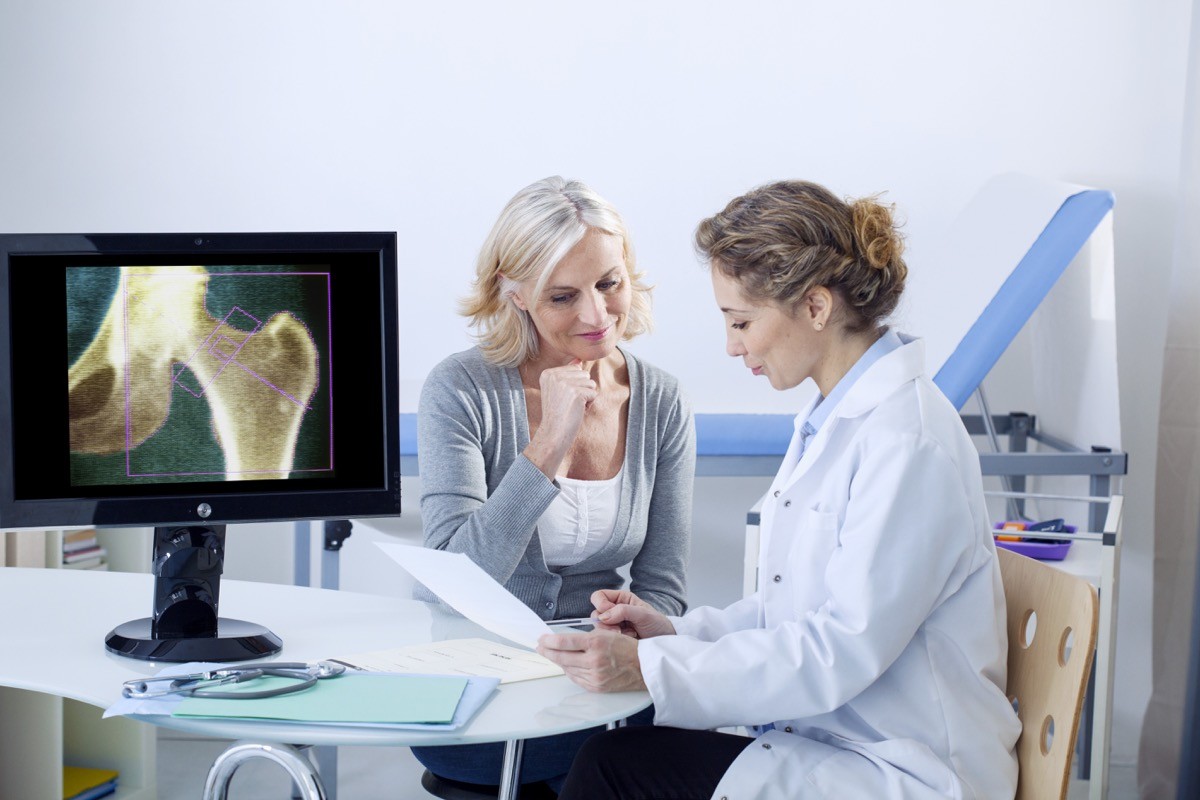This Superfood Can Help Prevent Heart Disease, Weight Gain, and More—But You’re Probably Not Eating It

Look in the dairy aisle of many mainstream grocery stores today, and you’ll likely find kefir: a fermented milk drink with a tangy taste and fizzy consistency. That’s great news, given that many nutrition experts praise kefir as a veritable superfood with heaps of health benefits. However, few Americans drink the beverage regularly or understand the notable differences between kefir and other dairy products such as milk and yogurt.
“Kefir is different from milk in that it is cultured, which provides numerous healthy bacteria,” explains Shelley Balls, RDN, LDN, a registered dietitian and nutritionist for Consumer Health Digest.
The beverage is made by melding dairy milk with kefir grains, a mixture of bacteria and yeast that contain lactic acid bacteria, yeast, and acetic acid bacteria. The result is a beverage that is low in lactose and contains around 60 species of 25-30 billion colony-forming units (CFUs) of gut-healthy probiotics. And, according to experts, there are six major ways this superfood can improve your health.
RELATED: This Food Can Trigger a 15% BMI Weight Loss—But You’re Probably Not Eating It.
1
Drinking kefir supports gut health.

“Kefir is a powerhouse for gut health, thanks to its rich content of probiotics—those friendly bacteria that keep your digestive system running smoothly,” says Ramesh. “Unlike yogurt, kefir typically contains a wider range of strains, which can have a more comprehensive impact on your gut microbiome. A healthy gut not only aids digestion but also plays a role in immunity and overall well-being.”
For example, studies have shown that drinking kefir can alleviate symptoms of irritable bowel syndrome, ulcers caused by H. pylori infection, and other chronic gastrointestinal problems.
2
Kefir boosts immune function.

Ramesh says the probiotics found in kefir also offer a natural immune boost.
“Particularly, Lactobacillus kefiri can strengthen your immune system by reducing inflammation and enhancing the body’s defenses against infections. It also contains compounds with antimicrobial properties, giving you extra protection,” she tells Best Life.
Trista Best, RDN, LD, registered dietitian at The Candida Diet, further explains how kefir’s fermentation process confers protective benefits over the immune system.
“Probiotics actively repopulate your gut with healthy bacteria, which are needed for proper immune function. It has been said that the immune system is housed in the gut, and this is relatively true. The gut’s microbiome plays many vital roles in the body, and when it is out of balance, nearly every body system is impacted,” she says.
RELATED: These 6 Foods Can Lead to Better Brain Health—But You’re Probably Not Eating Them.
3
Kefir may reduce cancer risk.

Having an imbalance of the gut microbiota is associated with a higher risk of certain types of cancer, and preliminary studies suggest that improving gut health can have a positive effect on reducing cancer risk.
For instance, one 2007 animal study found that drinking kefir had an anti-tumorigenic effect on estrogen-dependent breast cancer cells, slowing their proliferation in a dose-dependent manner.
4
Kefir may promote heart health.

Drinking kefir regularly may also support a healthy heart by helping to lower blood pressure and cholesterol levels.
“The probiotics and bioactive compounds in kefir can reduce inflammation and may even help regulate blood lipid levels. Over time, incorporating kefir into your diet could be a small but meaningful step toward better cardiovascular health,” Ramesh notes.
RELATED: Eating This Tasty Cheese Can Improve Your Memory, New Research Shows.
5
Kefir helps strengthen bones.

Kefir may also help you stave off osteoporosis and other bone diseases and disorders.
“With its high levels of calcium, vitamin K2, and magnesium, kefir is a nutrient-dense choice for promoting bone health,” says Ramesh. “These nutrients are essential for maintaining bone density and preventing conditions like osteoporosis. Plus, kefir’s probiotics may enhance calcium absorption, making it a better option than standard dairy for supporting strong bones.”
6
Kefir aids in weight maintenance.

Many people cut out or limit dairy when they’re trying to lose weight, but drinking kefir can actually aid in weight loss.
“If you’re trying to maintain or lose weight, kefir can be a helpful addition to your diet,” Ramesh tells Best Life. “It’s high in protein, which helps you feel full longer, and its probiotics may positively influence gut bacteria that play a role in metabolism. By keeping you satisfied and supporting a healthy gut, kefir can make weight management a little easier.”
RELATED: 10 Best Vitamin-Rich Foods to Add to Your Diet, Nutritionists Say.
How often should I consume kefir?

Ramesh says that many people can safely plan on making kefir a part of their everyday diet, but it’s always a good idea to check in with your doctor before making any lasting changes.
“For most people, drinking kefir daily is both safe and beneficial. A good starting point is one to three cups (237–710 mL) per day, depending on individual health goals and tolerance,” she tells Best Life.
“However, if you have a weakened immune system, it’s important to check with your doctor before adding kefir to your routine,” she notes. “While probiotics in kefir are generally helpful, some studies suggest they could pose a risk for individuals with compromised immunity.”
The nutritionist suggests looking for plain, unsweetened kefir with live and active cultures for the best results. “Flavored versions often have added sugars that can negate some of the health benefits,” she advises.
Not sold on the flavor? Try incorporating kefir into smoothies, salad dressings, or even pancake batter for a nutritious twist, Ramesh suggests.